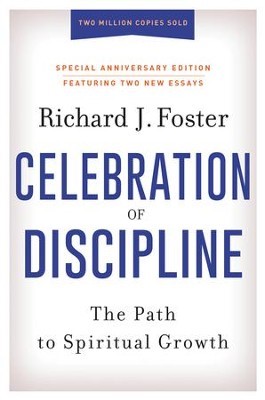Click here to return to Blog Post Intro

Fasting, of course, is not an exclusively Christian Discipline, either, as all major religions of the world recognize its merit. Even Hippocrates, the father of modern medicine, believed in fasting.
Fasting in the Bible
Consider the list of biblical heroes who fasted. It reads like a “Who’s Who” of Scripture:
- Moses the lawgiver
- David the king
- Elijah the prophet
- Esther the queen
- Daniel the seer
- Anna the prophetess
- Paul the apostle
- Jesus Christ the incarnate Son
Throughout Scripture fasting refers to abstaining from food for spiritual purposes. It stands in distinction to the hunger strike, the purpose of which is to gain political power or attract attention to a good cause. It is also distinct from health dieting which stresses abstinence from food for physical, not spiritual, purposes.
In Scripture, the normal means of fasting involves abstaining from all food, solid or liquid, but not from water. It must be underscored that the absolute fast—which includes fasting from water—is the exception and should never be engaged in unless one has a very clear command from God, and then for no more than three days. In most cases fasting is a private matter between the individual and God.
Is Fasting a Commandment?

Jesus does not say “If you fast,” neither does he say “You must fast.” His word is, very simply, “When you fast…” He seems to make the assumption that people will fast and gives us instruction on how to do it properly.
Martin Luther explained, “It was not Christ’s intention to reject or despise fasting…it was His intention to restore proper fasting.”
While they were worshiping the Lord and fasting, the Holy Spirit said, “Set apart for me Barnabas and Saul for the work to which I have called them.” So, after they had fasted and prayed, they placed their hands on them and sent them off. – Acts 13:2-3
It is clear from this passage that Christ both upheld the Discipline of fasting and anticipated that his followers would do it.
Why has the giving of money, for example, been unquestionably recognized as an element in Christian devotion and fasting so disputed? Certainly we have as much, if not more, evidence from the Bible for fasting as we have for giving. Perhaps in our affluent society fasting involves a far larger sacrifice than the giving of money.
Fasting must forever center on God. It must be God-initiated and God-ordained.
Like that apostolic band at Antioch, “fasting” and “worshiping the Lord” must be said in the same breath. Charles Spurgeon writes, “Our seasons of fasting and prayer at the Tabernacle have been high days indeed; never has Heaven’s gate stood wider; never have our hearts been nearer the central Glory.”
John Wesley declares, “First, let it [fasting] be done unto the Lord with our eye singly fixed on Him. Let our intention herein be this, and this alone, to glorify our Father which is in heaven…”
More than any other Discipline, fasting reveals the things that control us. If pride controls us, it will be revealed almost immediately. David writes, “I humbled my soul with fasting” (Psalm 69:10). Anger, bitterness, jealousy, strife, fear—if they are within us, they will surface during fasting.

Fasting reminds us that we are sustained “by every word that proceeds from the mouth of God.” Food does not sustain us; God sustains us. Therefore, in experiences of fasting we are not so much abstaining from food as we are feasting on the word of God. Fasting is feasting!
Fasting helps us keep our balance in life. How easily we begin to allow nonessentials to take precedence in our lives. How quickly we crave things we do not need until we are enslaved by them.
Numerous people have written on the many other values of fasting such as increased effectiveness in intercessory prayer, guidance in decisions, increased concentration, deliverance for those in bondage, physical well-being, revelations, and so on. In this, as in all matters, we can expect God to reward those who diligently seek him.
How Do You Get Started?
Begin with a partial fast of twenty-four hours’ duration; many have found lunch to lunch to be the best time. This means that you would not eat two meals. Fresh fruit juices are excellent to drink during the fast.
Break your fast with a light meal of fresh fruits and vegetables and a good deal of inner rejoicing. After two or three weeks you are prepared to attempt a normal fast of twenty-four hours. Drink only water but use healthy amounts of it.
In many ways the stomach is like a spoiled child, and a spoiled child does not need indulgence, but needs discipline. Martin Luther says “…the flesh was wont to grumble dreadfully.”
It should go without saying that you should follow Jesus’ counsel to refrain from calling attention to what you are doing.
After having achieved several fasts with a degree of spiritual success, move on to a thirty-six-hour fast of three meals. With that accomplished, it is time to seek the Lord as to whether he wants you to go on a longer fast. Three to seven days is a good time period and will probably have a substantial impact on the course of your life.
Although the physical aspects of fasting intrigue us, we must never forget that the major work of scriptural fasting is in the realm of the spirit. What goes on spiritually is much more important than what is happening bodily. You will be engaging in spiritual warfare that will necessitate using all the weapons of Ephesians 6.

Fasting can bring breakthroughs in the spiritual realm that will never happen in any other way.
Now is the time for all who hear the voice of Christ to obey it!

